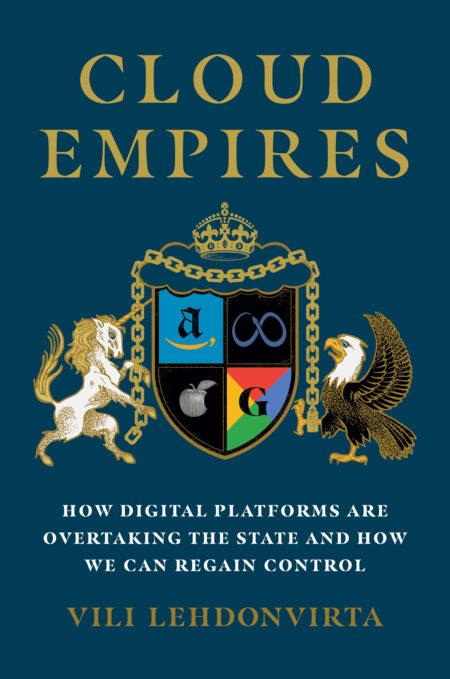In a new blog, Professor Vili Lehdonvirta and researcher Sara Parker consider the economic implications of a “TikTok ban” – what’s at stake for businesses and creators on the platform, what are the possibilities of an American buyer acquiring the app, and what would a TikTok-less future entail for its U.S. competitors?
The U.S. Congress is poised to pass a bill that could shut down TikTok’s operations in the United States if its owner ByteDance does not sell the app to an American investor. What would an “America without TikTok” look like?
TikTok “ban”: impacts on businesses and creators
A TikTok ban would have a huge short-term impact on many content creators and small businesses who rely on the app. People make money on TikTok in a few different ways. TikTok pays some content creators based on views, but the payouts tend to be smaller than those offered by YouTube. Creators can also receive virtual gifts from viewers, which translates into additional payouts. Creators tend to make the most money by producing sponsored videos that advertise products.
Moreover, TikTok has also emerged as an important way for small U.S. businesses to reach young consumers with sponsored content. Many small businesses have started producing their own TikTok content to reach new customers. TikTok itself estimates that there are 7 million small businesses in the United States using the platform to connect with their consumer base, although these estimates are to be taken with a grain of salt.
TikTok is an especially important channel for small businesses catering to fast-moving trends, partly through TikTok Shop, the platform’s e-commerce platform. Last year, Shop generated $1.1bn in gross merchandise revenue (GMR) in the US. This is less than one percent of Amazon’s GMR, but it has been growing fast. TikTok Shop’s success is largely due to its ability to seamlessly turn users into consumers: videos highlighting the newest trends are now accompanied by direct links to buy the featured product, or to browse other items sold by the brand. TikTok Shop also handles most of its own logistics, so it does not need to rely on competing platforms like Amazon and Walmart for services like shipping. Hashtags like #TikTokMadeMeBuyIt further help the app in keeping its commerce in-house by normalizing the role of TikTok in facilitating commerce.
Will TikTok Be Bought?
Despite TikTok’s obvious popularity and apparent growing role in American commerce, nobody has yet emerged as a clear buyer for the app. According to some analysts, TikTok’s US business should be valued at over $100 billion, so there are not that many buyers around who could afford it. Tech giants like Amazon, Microsoft, Google, or Meta could afford it, but they might run into antitrust problems for buying a direct competitor. Meta might be better off just letting TikTok disappear and picking up its market share with Instagram.
There have been media reports about various groups of private investors who might be able to raise the necessary funds. But ultimately the problem might not be a lack of interest in buying TikTok, but unwillingness from ByteDance to sell. For years, the Chinese government has been pushing its platform companies to go global and rival the Americans. Now when they finally have a runaway success, they are unlikely to give it up easily.
And even if an eligible buyer emerged and if ByteDance decided to sell, TikTok might ultimately not be a sound investment. TikTok’s finances are not publicly disclosed, but various estimates suggest that it is facing challenges. TikTok’s number of active users globally declined in the final three months of last year and its downloads only increased by 4% – while its competitor Instagram saw an increase in active users of 13 million and a 20% increase in downloads. TikTok also holds a meager share of the advertising market: TikTok’s share of US video ad spending was about 6 percent last year, which is considerably less than YouTube’s 8 percent or Meta’s 30 percent. Furthermore, although TikTok’s owner ByteDance recorded $28 billion in net profit in 2023, none of it came from TikTok: the app itself is not yet profitable, so ByteDance’s profit mostly comes from its products in China.
Although TikTok is undoubtedly growing, it may not be growing fast enough to make an ownership change viable – potentially undermining future chances that it will remain accessible for American users in the event of a Congress bill.
What if a ban does happen?
A TikTok “ban” in the US would primarily impact other platforms – namely, Instagram and Facebook, both owned by Meta.
If TikTok disappeared from the US tomorrow, Instagram would probably pick up most of its audience. Instagram already appears to be successfully copying TikTok’s short video format, and is growing faster in the US than TikTok. However, the kinds of brands and creators who thrive on TikTok would not necessarily have the same reach and revenue on Instagram. TikTok is about appealing to trends, virality, and algorithmic personalization, whereas success on other platforms has been more about cultivating an audience of regular followers. So, while TikTok disappearing from the scene probably wouldn’t shrink the total size of the creator economy pie all that much, it could redistribute it somewhat.
Meta isn’t necessarily celebrating, though. Because if the U.S. government succeeds in curbing TikTok, it could well inspire the European Union to try something similar against Meta’s platforms.
About the authors
We are researchers who study the growing influence of platforms. Vili Lehdonvirta is Professor of Economic Sociology and Digital Social Research at the Oxford Internet Institute, University of Oxford. and leads a research group examining the politics and socio-economic implications of digital technologies.
Sara Parker is an incoming Masters student at the Oxford Internet Institute and is currently an Analyst for the Canadian Media Ecosystem Observatory, where she researches the role of digital platforms in Canadian democracy.
Find out more about Professor Lehdonvirta’s research and published work. Find out more about Sara Parker and her research interests.





